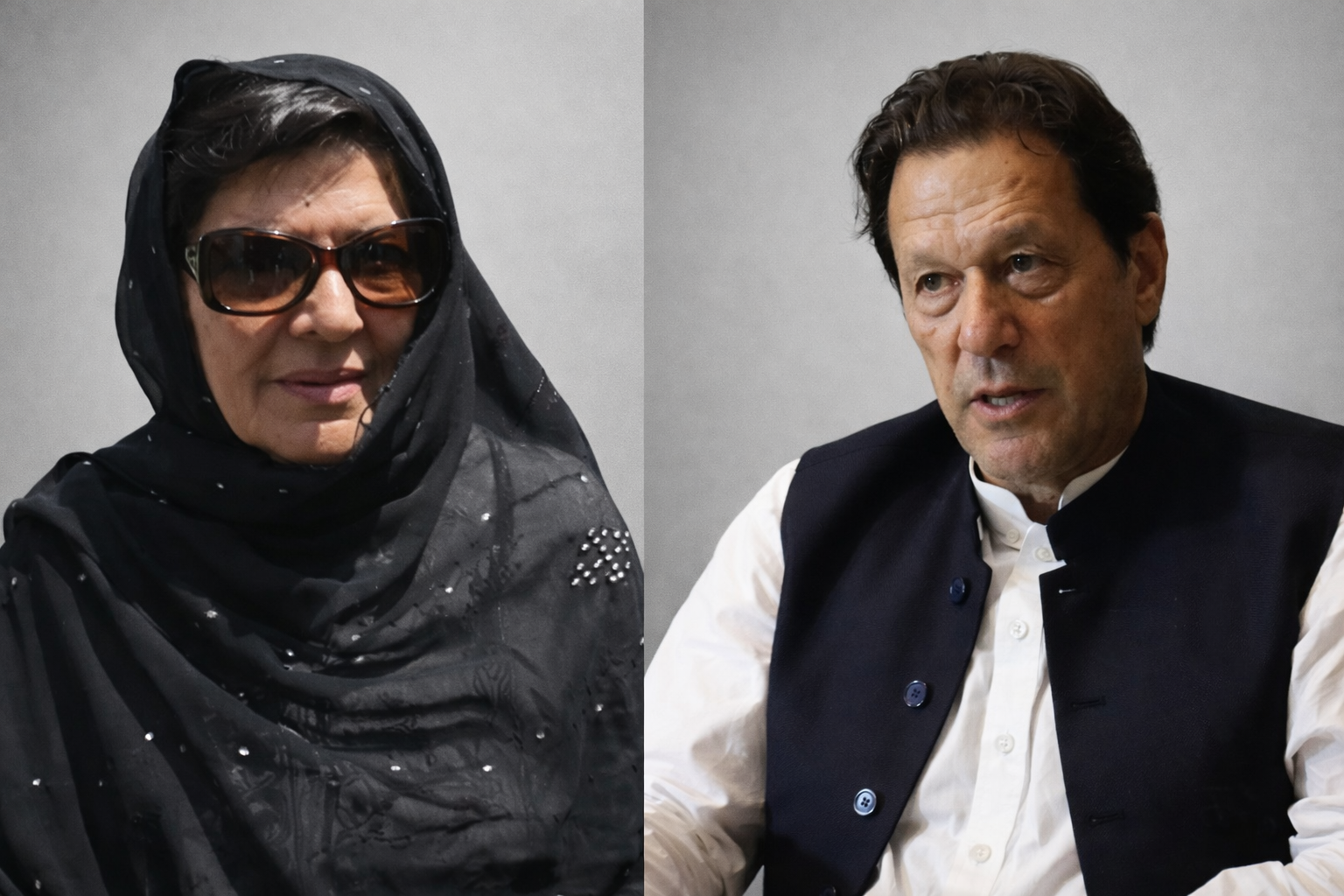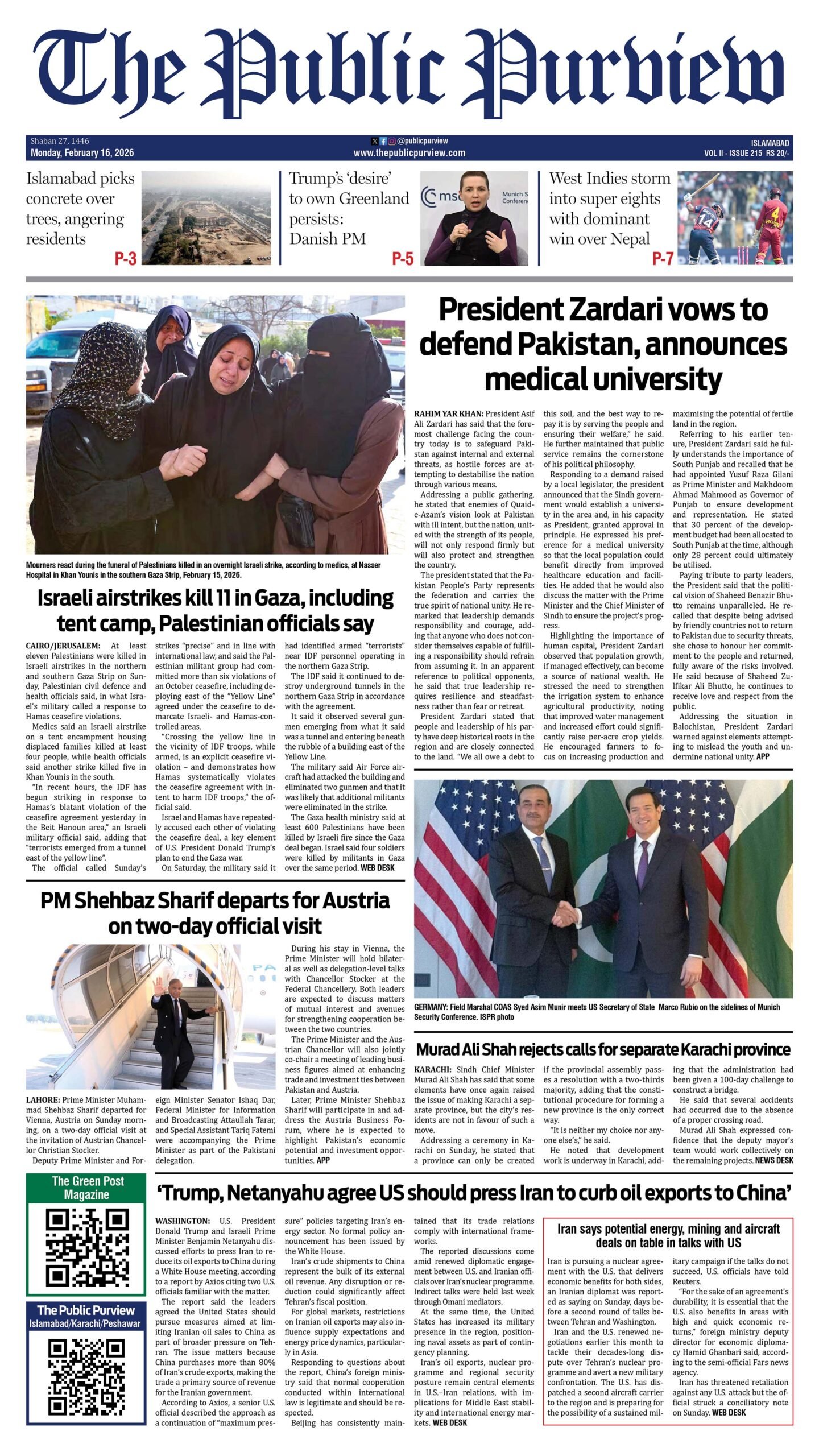Omay Aimen
The principle of national sovereignty dictates that every state holds the fundamental right to safeguard its borders, ensure the security of its citizens, and regulate immigration according to its domestic imperatives. Pakistan, a nation that has long borne the burden of hosting millions of Afghan refugees, is now taking decisive measures to reclaim control over its internal dynamics. The recent push to relocate Afghan nationals from Islamabad Capital Territory (ICT) and Rawalpindi, coupled with the threat of deportation, is not a rash or unprecedented act but a necessary response to persistent security threats, economic strains, and rising criminal activities associated with undocumented migrants. However, the response of international organizations such as the UNHCR and the IOM raises critical questions. Why do these institutions selectively advocate for the rights of refugees in Pakistan while remaining conspicuously silent on the displacement crises in Gaza, Syria, and Libya? The hypocrisy of global humanitarian agencies is laid bare when their concerns are disproportionately skewed towards specific regions, ignoring the broader, more devastating instances of forced migrations occurring elsewhere.
The case of Gaza exemplifies the stark contradictions in the international community’s stance on forced dislocations. For decades, Israel’s aggressive policies have systematically pushed Palestinians out of their homeland, culminating in recent efforts by certain powers to relocate the people of Gaza to foreign territories. Unlike Pakistan’s situation, where Afghan nationals are being asked to return to their homeland, Palestinians are being actively stripped of theirs. Egypt, for instance, has been approached as a possible destination for the relocation of Gaza’s residents, a move that would not only erase Palestinian identity but also serve Israel’s strategic objectives. The Western bloc, which frequently champions human rights, remains largely complicit in this calculated displacement. Meanwhile, the UN’s silence on this issue exposes its selective activism, undermining its credibility as a neutral humanitarian body.
Comparing Pakistan’s policy with similar international precedents reveals an even deeper layer of bias. In Iran, Afghan refugees are strictly confined to camps and are not allowed to integrate into mainstream society. This rigid control has prevented Iran from facing the same social and legal challenges that Pakistan is currently grappling with. Similarly, Western nations such as the United States and European countries maintain rigid immigration policies, often deporting individuals without global backlash. The double standards become glaringly evident when Pakistan, a country already struggling with economic instability and security concerns, is vilified for enforcing policies that are commonplace in other sovereign states. The presence of Afghan nationals in Pakistan has led to an increase in crime rates, illegal trade, and a strain on already limited resources. No country can be expected to indefinitely sustain an undocumented migrant population at the expense of its own citizens’ well-being.
The interference of organizations like UNHCR and IOM in Pakistan’s sovereign decisions is not merely an act of advocacy but a politically motivated maneuver aimed at destabilizing the country. The propagation of narratives that paint Pakistan’s policies as inhumane disregards the empirical realities of the situation. Afghan refugees have been accommodated for decades, with significant social and economic costs incurred by Pakistan. The country has provided shelter, education, and employment opportunities to millions, yet international organizations fail to acknowledge this generosity. The strategic intent behind such interventions is evident: to keep Pakistan entangled in perpetual crises while overlooking the genuine refugee catastrophes unfolding elsewhere. The question that must be asked is: why are these organizations so invested in prolonging the Afghan refugee presence in Pakistan while ignoring the orchestrated displacement of Palestinians?
Furthermore, Pakistan’s responsibility is first and foremost to its own citizens. The presence of illegal Afghan nationals exacerbates these problems, diverting resources away from Pakistani citizens who are in dire need of governmental support. National policies must prioritize domestic stability over external pressures. Countries like Turkey have set clear precedents by repatriating Syrian refugees despite international objections, citing national interest as the core reason. Pakistan, too, must exercise the same prerogative without succumbing to external coercion. The argument that Afghan nationals should be allowed to stay indefinitely contradicts the very essence of state sovereignty and national security. Every state must enforce measures that ensure its own survival and prosperity before catering to external populations.
The global response to Pakistan’s deportation policy is a stark reminder of the politically motivated nature of humanitarian advocacy. The blatant disregard for Palestinian suffering, the selective targeting of Pakistani policies, and the overall hypocrisy of international organizations indicate an agenda beyond mere refugee protection. Pakistan must remain resolute in its decisions, uphold its national interest, and counteract the narratives propagated by biased entities. The relocation of Afghan nationals is not an act of inhumanity but a necessary step towards reclaiming national security, economic stability, and social harmony. The world must recognize that no country should be coerced into sacrificing its sovereignty for the sake of global appeasement, especially when the same standards are not applied elsewhere.
The author is an independent researcher who writes on issues concerning national and regional security, focusing on matters having critical impact in these milieus.







 Today's E-Paper
Today's E-Paper